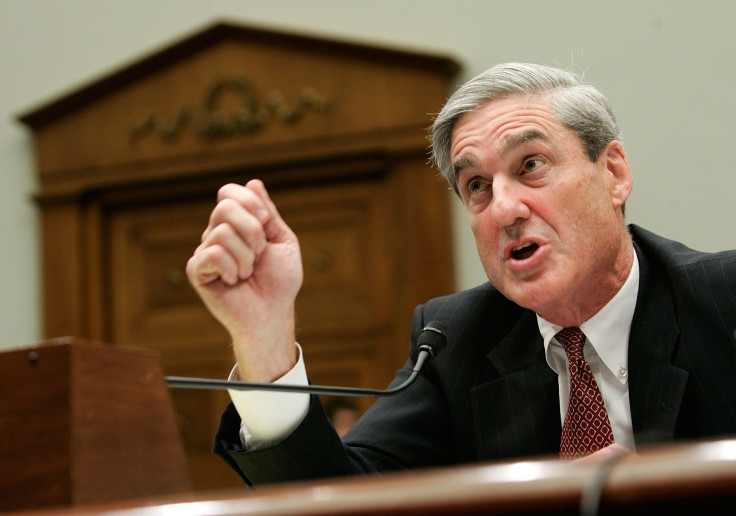Trump Can Be Impeached If Robert Mueller Proves President Obstructed Justice, DOJ Says

Former FBI Director James Comey had assured President Donald Trump that he was not personally under investigation when the former was in charge of the probe into possible collusions between the Trump administrations and Russian officials. However, things took a different direction after the president fired Comey. Special counsel Robert Mueller, who took over the responsibility of supervising FBI’s Russian investigation, will be interviewing intelligence officials looking for any evidence that Trump might have committed obstruction of justice, according to the latest report.
Director of National Intelligence Dan Coats, National Security Agency Director Mike Rogers and retired Deputy NSA Director Richard Ledgett, will be summoned to testify in front of Mueller this week, as the special counsel’s line of investigation digresses from Russian officials colluding with members of Trump’s campaign and is directed toward possibilities that the president might have tried to obstruct justice in the recent past, the Washington Post reported, Wednesday.
The special counsel's redirection of efforts came after Comey revealed during his testimony last Thursday that he had deliberately handed over his memos, detailing every interaction that he had with Trump, over to Mueller, his friend of 15 years, because he believed that Mueller would launch an investigation into whether Trump indeed obstructed justice by encouraging Comey to not investigate former National Security Advisor Michael Flynn any further.
Read: Donald Trump May Fire Robert Mueller, Russia Collusion Investigator, Citing Conflict Of Interest
"I don't think it's for me to say whether the conversation I had with the President was an effort to obstruct," Comey said in his testimony, Vox reported. "I took it as a very disturbing thing, very concerning, but that's a conclusion I'm sure the special counsel will work towards, to try and understand what the intention was there, and whether that's an offense," he added
Meanwhile, the Department of Justice has maintained that it would not be appropriate to indict a sitting president. Hence, if the special counsel can prove that Trump was involved in criminal misconduct, the case would be forwarded to the United States Congress, who would have the final say on whether to impeach the president or not.
According to Columbia University law professor John Coffee: "It's generally believed that you cannot indict a sitting president because that would paralyze the government. And because impeachment is the constitutional procedure created to remove a president,” CNBC reported.
Philip Rucker, the Washington Post’s Chief of the White House Bureau, tweeted shortly after the Post published the report about Mueller investigating Trump for obstruction of justice that the Trump administration would be looking to discredit the report by any means necessary.
Some of the talking points to be included in the White House’s attempt to defend the president in this instance would be reiterating that there is no case for obstruction of justice, that information leaks coming out of the FBI and the special counsel’s office is disgraceful, why former Attorney General Loretta Elizabeth Lynch is not being investigated for obstruction of justice where former Secretary of State Hillary Clinton’s leaked emails were concerned and so on.
A source sent me RNC/Trump talking points for Repubs seeking to discredit tonight’s WaPo scoop on Mueller investigating Trump obstruction —> pic.twitter.com/ctwy2si9A7
— Philip Rucker (@PhilipRucker) June 15, 2017
Mark Corallo, a spokesman for Trump's private attorney, Marc Kasowitz, has already condemned the Post report. "The FBI leak of information regarding the President is outrageous, inexcusable and illegal," Corallo told CNN, Wednesday.
Trump can invoke executive privilege to block the intelligence officials from speaking to Mueller about any matters related to the president but rights to that privilege can be taken away by the Supreme Court if the circumstances imply criminal conduct by the POTUS. During former President Richard Nixon’s Watergate scandal, the Supreme Court had ruled that no government officials can withhold information citing executive privilege.
© Copyright IBTimes 2025. All rights reserved.






















